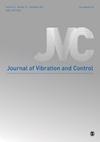Multi-objective optimization of inerter-based building mass dampers
IF 2.4
3区 工程技术
Q2 ACOUSTICS
引用次数: 0
Abstract
The building mass damper (BMD) is a design concept in which a structure is substructured in such a way that the upper substructure behaves as a large-mass tuned mass damper for the lower one. Its correct tuning usually requires softening (partial isolating) the upper substructure, which limits its application for retrofitting. The recently proposed inerter-based building mass damper (IBMD) solves, reasonably, the softening dynamically through the use of an inerter. This implies an in parallel intervention, which drastically simplifies the practicability of the BMD for retrofitting. The present paper involves comprehensive numerical simulations for multi-objective optimization of an IBMD, accounting for inherent structural damping. In particular, the deformation of the upper substructure is an additional objective function, besides the deformation of the lower substructure as considered in a previous work. Results demonstrate that the IBMD outperforms various benchmark interventions, including dampers, stiffeners, softening devices, and inerters without dampers. Additionally, it was found that the inherent structural damping partially replaces the need for additional damping. Finally, it was also shown that emphasizing the optimization of the lower substructure deformation enhances the overall structural safety in most cases. Nevertheless, the multi-objective optimization increases the versatility of the design concept in the case of substructures with different allowable deformations.基于感应器的建筑物质量阻尼器的多目标优化
建筑质量阻尼器(BMD)是一种设计理念,即通过对结构进行分层,使上层结构作为下层结构的大质量调谐质量阻尼器。正确的调谐通常需要软化(部分隔离)上层下部结构,这就限制了其在改造中的应用。最近提出的基于逆变器的建筑物质量阻尼器(IBMD)通过使用逆变器,合理地解决了动态软化问题。这意味着并行干预,大大简化了建筑质量阻尼器在改造中的实用性。本文对 IBMD 的多目标优化进行了全面的数值模拟,并考虑了固有的结构阻尼。特别是,除了先前工作中考虑的下部结构的变形外,上部下部结构的变形也是一个额外的目标函数。结果表明,IBMD 的性能优于各种基准干预措施,包括阻尼器、加劲器、软化装置和无阻尼器。此外,研究还发现,固有的结构阻尼可部分取代对额外阻尼的需求。最后,研究还表明,在大多数情况下,强调下部结构变形的优化可以提高整体结构的安全性。不过,在下部结构具有不同允许变形的情况下,多目标优化增加了设计概念的通用性。
本文章由计算机程序翻译,如有差异,请以英文原文为准。
求助全文
约1分钟内获得全文
求助全文
来源期刊

Journal of Vibration and Control
工程技术-工程:机械
CiteScore
5.20
自引率
17.90%
发文量
336
审稿时长
6 months
期刊介绍:
The Journal of Vibration and Control is a peer-reviewed journal of analytical, computational and experimental studies of vibration phenomena and their control. The scope encompasses all linear and nonlinear vibration phenomena and covers topics such as: vibration and control of structures and machinery, signal analysis, aeroelasticity, neural networks, structural control and acoustics, noise and noise control, waves in solids and fluids and shock waves.
 求助内容:
求助内容: 应助结果提醒方式:
应助结果提醒方式:


